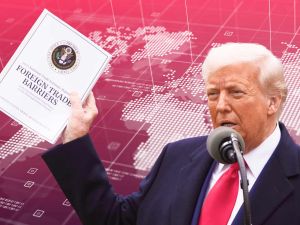Every August, we love to share our favourite beach books – ones which we think are key to understanding today’s ever-changing world. We hope you enjoy our recommendations, and you take one (or a few!) away with you this summer.
“Ibis” Trilogy by Amitav Ghosh, John Murray
For those in search of a compelling and engaging read, this trilogy of novels set in India and China is the perfect pick. A historical novel written by a sociologist, it offers both a pleasurable read and showcases meticulous research. The trilogy begins in the months leading up to the First Opium War in 1838 and takes us on a journey through time across the seas of the Indian Ocean and China. It’s a valuable read for reflecting on Asia’s colonial past and, in particular, a perspective on Chinese political culture and worldview, which, in many respects, seems to have remained unchanged from the mid-nineteenth century to the present day.
“The Story of Russia” by Orlando Figes, Bloomsbury Publishing
A gripping historical essay that reads like a novel. In “The Story of Russia,” Orlando Figes brings the characters who have shaped the rich history of Russia to life. Understanding this history is crucial to comprehending the politics and the worldview of the world’s largest nation today and the reasons behind its threat to stability in Europe with the recent attack on Ukraine.
Revisiting the events of one of the nations that has repeatedly reinvented itself holds a unique fascination: from the coronation of the sixteen-year-old Ivan the Terrible in a candlelit cathedral, to Catherine the Great, who bursts into her palace on horseback to arrest her husband, and the saga of the Romanovs, culminating tragically in the forest of Ekaterinburg.
Based on a lifetime of research and impeccably written, “The Story of Russia” is a monumental, compelling work full of suspense.
“Money” by Martin Amis, Vintage
We can’t omit a recommendation for one of the most important contemporary authors in British literature, who unfortunately passed away earlier this year. And we want to do so by recommending his, perhaps, most popular work – certainly the one that has remained most vividly in our collective memory: Money.
Through the character of John Self, a grotesque anti-hero of the 1980s whose life is marked by vices and paranoia, Amis presents us with his cynical and disillusioned view of the world. Self’s journey to the United States becomes an Odyssey adrift among the distortions, excesses and contradictions of the culture of the time (and it is not surprising that many insights are still valid today).
This post-modern journey is masterfully narrated by Amis, with his style brimming with irony and brilliance on every line.
“Life 3.0: Being Human in the Age of Artificial Intelligence” by Max Tegmark, Allen Lane
The book “Life 3.0: Being Human in the Age of Artificial Intelligence” by Max Tegmark, a professor at the Massachusetts Institute of Technology, is a treatise on the transformative implications of AI for humanity and society. The book provides a comprehensive exploration of the potential impact of AI, offering a range of scenarios from the most positive to the most dystopian. A significant portion of the book is dedicated to highlighting the importance of ethical considerations in AI development. It is an essential read for anyone who wants a comprehensive and well-informed overview of the potential impact AI could have on society in the coming decades.
“Midnight’s Children” by Salman Rushdie, Vintage Classics
The children who star as the protagonists of Rushdie’s classic – which won the Booker Prize in 1981 – were all born at the stroke of midnight on August 15, 1947 – the exact moment of India’s independence.
Among them are two children born in the same nursing home in Bombay, one from a wealthy Kashmiri family and the other from a singer and a father who abandoned her before birth. The children are switched at birth, and the book follows the story of their lives.
The novel narrates the challenges of India’s independence in its early years, challenges that are still not entirely resolved in a country that has made significant strides in recent years to establish itself as a leading economic and political power on the world stage.
“I, Robot” by Isaac Asimov, HarperVoyager
There are instances where literature manages to imagine future worlds and even influence philosophy and how we perceive the world. This is the case with the collection of stories published by Isaac Asimov, one of the fathers of science fiction, in 1950. The robots in Asimov’s novel possess a high level of intelligence, leading the author to contemplate practical and ethical considerations that are now more relevant than ever.
Who should dictate the law: man or machine? Well, the human characters in the stories ensure that the robots only carry out specific tasks and that humanity does not become subservient to sentient automatons, governing their actions with three laws that some still consider a starting point for the rules that should regulate our relationship with the disruptive new technologies emerging in the present.
“Where the Money Tree Grows: Invest Climate Smart and Get Rich” by Sasja Beslik and Karim Sayyad, Independently published
Current levels of consumption are unsustainable, as is our economy. However, by making the right investments, we can make a much bigger difference than through many actions in daily life such as recycling or buying sustainable products.
The authors of the book, two fund managers with over 20 years’ experience, demonstrate that sustainable savings and investment are among the most effective tools for combating climate change and achieving a sustainable future. Furthermore, responsible investments are potentially profitable for investors because companies that perform well in terms of sustainability generate better returns and have more robust financial data.
“The Trouble with Taiwan” by Kerry Brown and Kalley Wu Tzu Hui, Bloomsbury
This intriguing essay, written by a British professor of Chinese studies (yet another former diplomat) and an academic researcher from Taiwan, offers a comprehensive overview of the dispute between China and Taiwan, which could potentially become one of the next theatres of conflict. The authors argue that Taiwan is much more than a simple geopolitical issue for China. A valuable read to stay abreast of one of the issues that could define the relationship between China and the United States in the coming years.
*As with all investing, financial instruments involve inherent risks, including loss of capital, market fluctuations and liquidity risk. Past performance is no guarantee of future results. It is important to consider your risk tolerance and investment objectives before proceeding.





